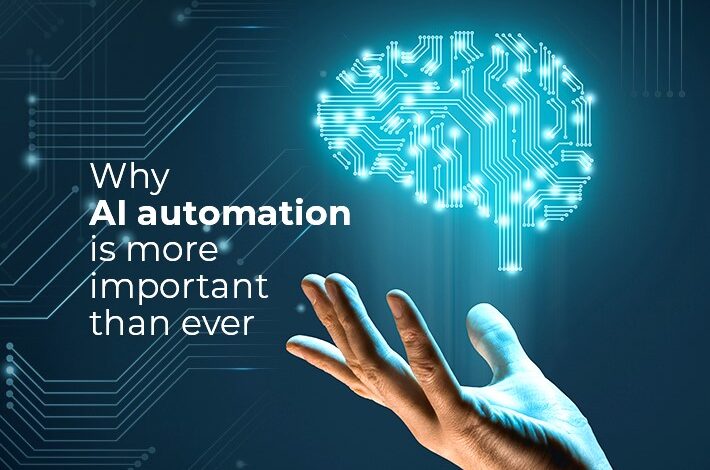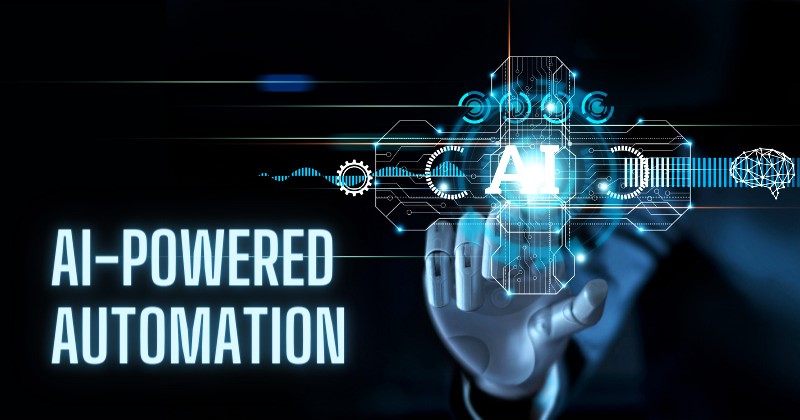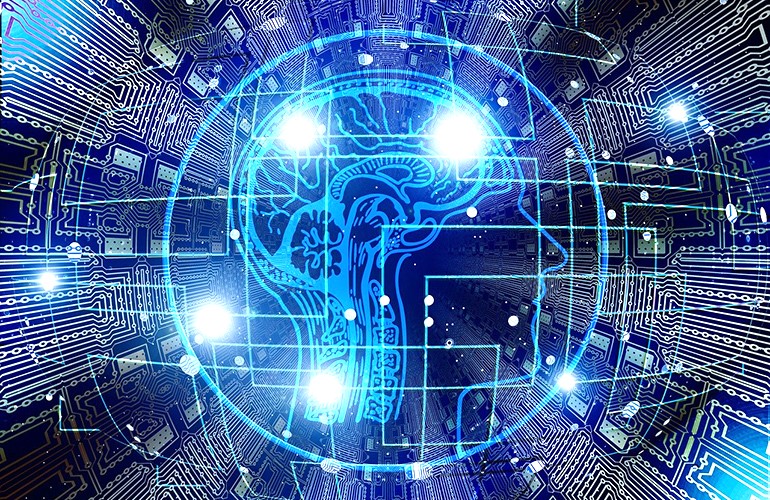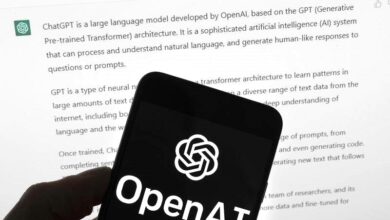AI and Automation: Shaping the Future of Industries
A Deep Dive into the Impact of AI and Automation on Modern Businesses

AI and Automation: In the age of rapid technological advancements, Artificial Intelligence (AI) and Automation have emerged as two of the most transformative forces. These groundbreaking technologies are reshaping industries, streamlining processes, and revolutionizing the way we live and work. In this article, we will delve into the intricacies of AI and Automation and explore how they are changing the landscape of the modern world.

The Rise of Artificial Intelligence
Artificial Intelligence, often referred to as AI, is the simulation of human intelligence in machines that are programmed to think, learn, and problem-solve like humans. AI has gained unprecedented momentum in recent years, thanks to its potential to enhance efficiency, reduce costs, and drive innovation across various sectors.
AI in Healthcare
With the ability to analyze vast amounts of medical data quickly and accurately, AI is transforming diagnostics, treatment planning, and patient care. Machine learning algorithms can detect diseases at an early stage, predict patient outcomes, and even assist in drug discovery, making healthcare more precise and personalized.
AI in Finance
In the financial sector, AI is revolutionizing how transactions are processed and risks are managed. AI-powered chatbots provide instant customer support, while predictive analytics algorithms assist in fraud detection and investment strategies. These advancements not only streamline operations but also enhance the overall customer experience.
AI in Education
Education is another domain where AI is making significant strides. Personalized learning platforms use AI algorithms to tailor educational content to individual student needs, improving learning outcomes. Moreover, AI-driven chatbots are being employed for administrative tasks, allowing educators to focus more on teaching.
The Power of Automation
It has been around for decades but has recently experienced a resurgence with the integration of AI and advanced robotics.
Automation in Manufacturing
Manufacturing has been at the forefront of automation for years. Robots equipped with AI algorithms can now handle intricate assembly tasks, resulting in higher production rates and superior product quality. This not only reduces labor costs but also ensures more precise manufacturing processes.
Automation in Customer Service
In the realm of customer service, automation is transforming the way businesses interact with their clients. Chatbots and virtual assistants powered by AI can provide round-the-clock support, answer inquiries, and even process orders. This not only enhances customer satisfaction but also frees up human agents to tackle more complex issues.
Automation in Transportation
The transportation industry is also witnessing a revolution driven by automation. Self-driving cars and trucks, guided by AI systems, promise safer and more efficient transportation. Additionally, smart traffic management systems can optimize traffic flow, reducing congestion and emissions.
Outranking the Competition
To outrank existing articles on AI and Automation, it’s crucial to provide valuable and comprehensive information. Our commitment to delivering the most up-to-date insights sets us apart from the competition. We understand the intricacies of these technologies and their real-world applications.
The combination of AI and automation?
The combination of AI (Artificial Intelligence) and automation refers to the integration of AI technologies into automated systems and processes. It involves using AI algorithms and machine learning models to enhance and optimize automation.
In this combination:
AI provides intelligence:
AI algorithms enable machines and systems to analyze data, recognize patterns, make decisions, and learn from experiences. It mimics human intelligence, allowing machines to perform tasks that typically require human judgment.
Automation provides execution:
Automation, on the other hand, focuses on the mechanization of tasks and processes, reducing the need for human intervention. It involves the use of technology and machinery to perform repetitive, rule-based tasks efficiently.

Conclusion:
In conclusion, AI and Automation are reshaping the world as we know it. These technologies are not just buzzwords; they are driving real change across industries. From healthcare to finance, education to manufacturing, and beyond, AI and Automation are transforming the way we live and work. To stay at the forefront of this revolution, it’s essential to stay informed, and our commitment is to provide you with the most insightful and relevant content
FAQs:
How does AI work?
AI works by using algorithms and data to analyze patterns, make predictions, and adapt to new information. Machine learning, a subset of AI, allows machines to learn from experience and improve their performance over time.
What are the practical applications of AI?
AI has diverse applications across various industries, including healthcare (diagnostics and personalized treatment), finance (fraud detection and trading), education (personalized learning), and transportation (self-driving cars).
What is Automation?
It aims to streamline processes, reduce errors, and increase efficiency.
How is AI related to Automation?
AI and Automation are often integrated to enhance the capabilities of automated systems. AI-powered automation can make decisions based on real-time data and adapt to changing conditions.
What industries are adopting Automation?
Automation is widely adopted in manufacturing (robotic assembly lines), customer service (chatbots), and transportation (self-driving vehicles). It is also making inroads in agriculture, logistics, and healthcare.
Is AI a threat to jobs?
While AI may automate certain tasks, it also creates new job opportunities in fields such as data science, machine learning, and AI development. It can also enhance job roles by automating repetitive tasks, allowing employees to focus on higher-value work.
How can businesses benefit from AI and Automation?
Businesses can benefit from AI and Automation by improving efficiency, reducing operational costs, enhancing customer experiences, and gaining insights from data for better decision-making.
Are there ethical concerns with AI and Automation?
Yes, ethical concerns include issues related to bias in AI algorithms, job displacement, privacy, and security. Addressing these concerns is essential for responsible AI and Automation adoption.
Where can I learn more about AI and Automation trends?
To stay updated on the latest trends and developments in AI and Automation, you can explore reputable technology news websites, research papers, and online courses from trusted platforms.



